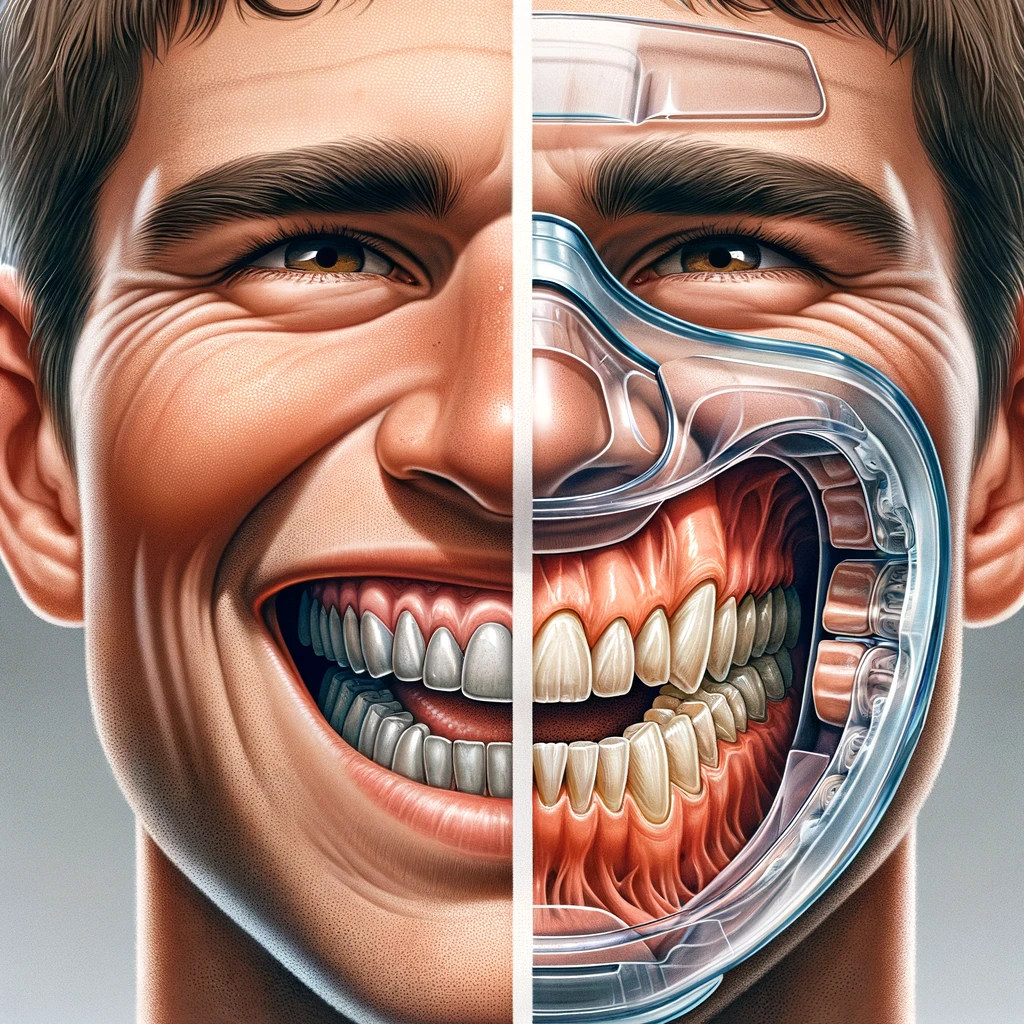
Bruxism, commonly known as teeth grinding, is a condition that can cause severe damage to teeth and discomfort, affecting individuals during both day and night. The relentless grinding and clenching not only wear down the enamel but can also lead to jaw pain, headaches, and even disorders in the temporomandibular joint (TMJ). To mitigate these effects, mouthguards have emerged as a highly effective solution, offering protection and relief around the clock.
Mouthguards designed to prevent bruxism are crafted from durable materials that provide a cushioning barrier between the upper and lower teeth. By wearing a mouthguard, the direct contact between teeth is minimized, which helps protect the enamel from erosion. This barrier also distributes the pressure exerted during clenching, reducing the strain on the jaw muscles and joints. Consequently, this can alleviate associated symptoms such as jaw soreness and headaches.
There are generally two types of mouthguards available for those suffering from bruxism: over-the-counter (OTC) and custom-fitted, which are provided by dental professionals. OTC mouthguards are a more accessible and cost-effective option, available in drugstores and online. They typically come in standard sizes and a boil-and-bite model, which softens in hot water and then forms to the shape of the user’s mouth. While these are convenient, they may not always provide the perfect fit, which can be less comfortable and less effective at preventing the grinding of teeth.
Custom-fitted mouthguards, on the other hand, offer a more tailored solution. Created from a mold of the user’s teeth, these guards ensure a precise fit, which not only enhances comfort but also maximizes the level of protection. Though more expensive, their customized nature often makes them more durable and better at distributing the force of biting, which can be particularly beneficial for severe bruxers.
The versatility of mouthguards means they can be used both during the day and at night. Nighttime is often when unconscious teeth grinding occurs most frequently, and wearing a mouthguard while sleeping can prevent damage to the teeth and reduce noise from grinding, which might otherwise disturb sleep. For daytime use, mouthguards are particularly useful for those who find themselves clenching their teeth due to stress or concentration. These guards are usually thinner and less noticeable, making them more comfortable for daytime wear and less likely to impede speech.
Moreover, the benefits of using mouthguards extend beyond just protecting the teeth and reducing symptoms. They can play a crucial role in maintaining overall dental health. Chronic teeth grinding can lead to serious dental issues, such as fractures in the teeth or even tooth loss. By using a mouthguard, individuals can significantly reduce their risk of such complications, potentially saving on extensive and expensive dental repairs in the future.
In conclusion, mouthguards are a practical and effective solution for managing bruxism. Whether used during the day or night, they can provide significant relief from the symptoms of teeth grinding and help maintain the integrity of one’s dental health. Individuals experiencing symptoms of bruxism should consider consulting with a dental professional to explore the option that best suits their needs, ensuring comfort, effectiveness, and overall oral health preservation.
Illustration depicting the impact of mouthguards on dental health, showing both scenarios with and without a mouthguard. You can see the differences in teeth condition and jaw tension clearly.